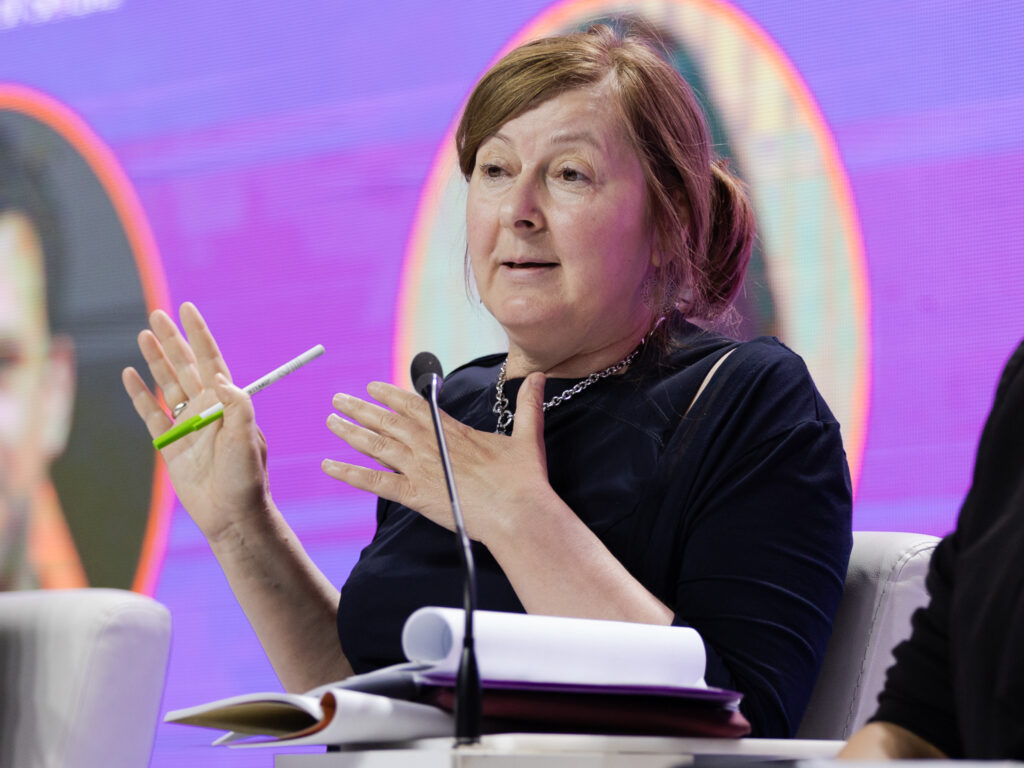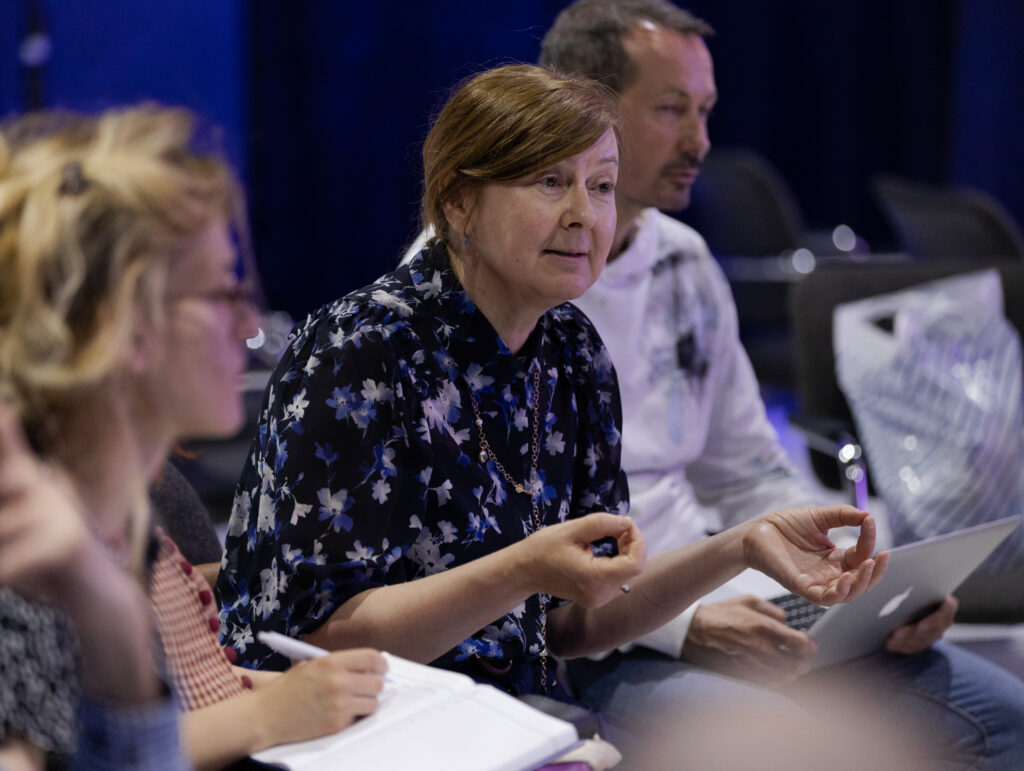Brankica Petković is Head of the Center for Media Policy at the Peace Institute in Ljubljana. She has been working at the Peace Institute since 2001. Her work is focused on monitoring, policy research, advocacy, training/education and publishing activities in the field of media accountability, access of minority groups and citizens to the media, media content diversity and media ownership pluralism.

Author: Arbjona Cibuku / Photo: Vanja Čerimagić
Are journalists facing political pressure in Slovenia?
Journalists in Slovenia are facing political pressure. Mainly it has been the case in the past two years when we had a government run by the ruling party. The Prime Minister, Janez Janša, openly declared war against the media, considering them biased toward left-liberal values. Public media, like the public broadcaster and the publicly-owned press agency, have been under huge pressure, including financial pressure. Currently, there are completely new governing board editors making decisions in favor of the ruling party, who were replaced at the elections two weeks ago. However, they still control the public broadcaster, and journalists of public broadcasters will go on strike because of this political pressure. Due to political pressure, the publicly-owned press agency was left without public funding for almost a year. The government tried to start and collect and close it down because they couldn’t control it. So, citizens, with the initiative of the journalists’ association on crowdfunding, contributed almost half a million euros to keep them alive.
What should be done to improve the transparency of media ownership in the Western Balkans?
The transparency of media ownership should be improved in a way that not only the owners are known but also the people who are behind it, meaning beneficial owners. Even the declared owners have not always been known in the region. We think that there should be a legal obligation to disclose beneficial owners in media registers or similar kinds of registers, which should be regularly updated. Also, civil society can act in this matter and conduct all research studies and databases and updates. There must be a regulation that obliges owners to declare ownership in any change. Therefore, the state and citizens can see who are the owners behind certain media outlets and editorial policies.

How does the lack of transparency of media ownership affect media pluralism?
Lack of transparency influences media pluralism in a way that media owners are hiding and can own more media outlets, so certain media owners or media groups can control a large portion of the media landscape. In that way, there is no possibility for other media to grow and for the citizen to access pluralistic, different content with diverse opinions and editorial policies.
In the end, I would like to focus a bit on the access of minority groups and citizens to the media. How open are commercial media in covering these topics? Do you think that minority groups have enough space in the media?
Commercial media are oriented toward gaining profit, and they’re not very much in favor of content that doesn’t attract many audiences. It’s unusually content that covers discrimination issues or any kind of minority. Typical topics are not attractive for commercial media, so they’re not very much present, such as their stories, lives, and so on. Sometimes it is made on purpose, to attract audiences and excitement, sentiment, and even hatred to present these minority groups with stereotypes and prejudice. We are counting on public media, which are, by definition, established to serve various groups in society, not only majority but also minority groups. So, as media researchers and media advocates, we demand, particularly from public service media, to include minority groups in their programs. In Slovenia, I have been fighting for the Roma community, an unprivileged and poor community, to become part of the public broadcast so that they have their TV and radio shows weekly. That has been a struggle to achieve because, according to the law, it is not an obligation. However, step by step, we have managed to do it. What is also important for minority groups is to have their own media to express themselves, even their own music and so on, and to control the content, so they are the editors. In public media, somebody else controls it, so their media are also important for the access of minority groups to the media.